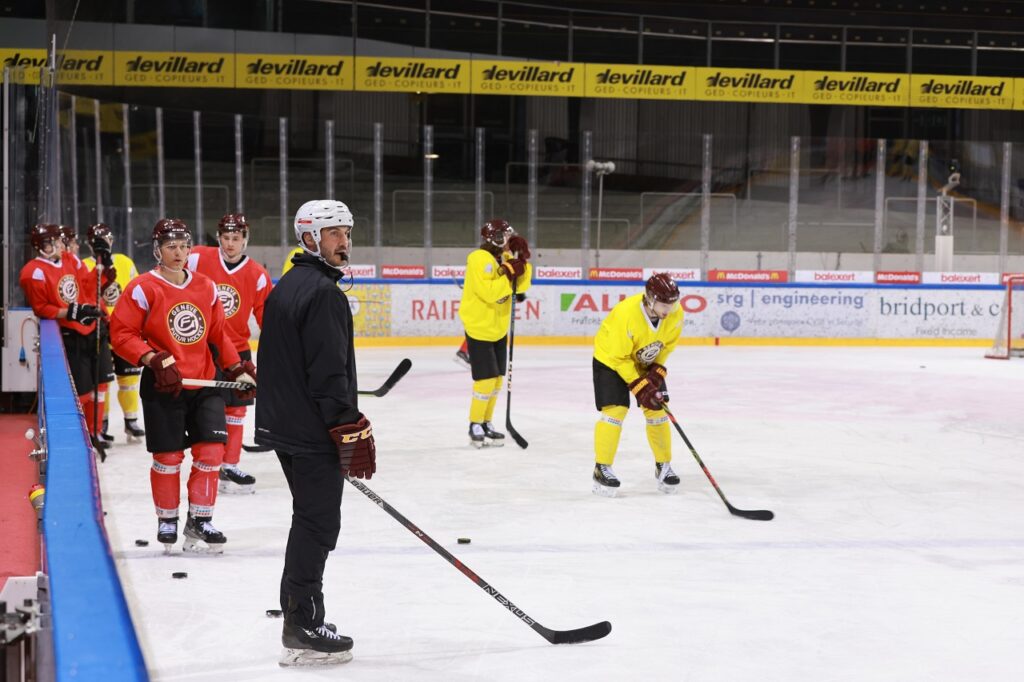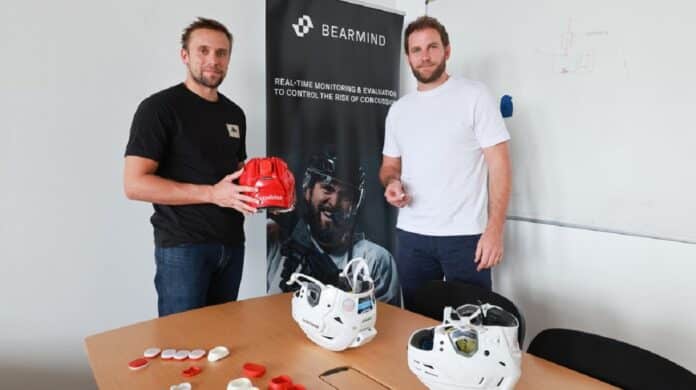Bearmind, an EPFL spin-off, has developed smart helmets that provide a set of metrics that allow coaches to track the neurological effects of head impacts on their players.
Body checks are a part of hockey, but they can be dangerous. During the 2016-2017 season, the Swiss Ice Hockey Federation recorded 104 concussions among players in the two highest leagues. Medical attention and a few days off are usually enough to get players back on their feet. However, repeated head impacts can cause severe long-term brain damage. Hockey organizations are looking for solutions such as flexible dasher boards and better-padded helmets.
The newly developed helmets contain sensors linked to a smartphone app, providing players and coaches with real-time data on head impact strength, frequency, and severity. The sensors will be integrated into the foam padding used inside helmets starting next season to serve as pressure detectors. Bearmind has ambitious goals, such as supplying helmets to US hockey players and developing systems for other sports.
Many players from the Lausanne and Ajoie Hockey Clubs in western Switzerland are wearing Bearmind’s helmets, which look exactly like regular helmets except for a small oval-shaped device attached to the exterior.
Mathieu Falbriard, a Bearmind co-founder and CEO, explains, “We’re working with a helmet manufacturer to incorporate our sensors into the foam padding, based on technology we recently patented.” the sensors are what will allow the app to relay detailed, real-time data.
Bearmind is a technology developed by EPFL’s Laboratory of Movement Analysis and Measurement that compiles data from all players wearing helmets using algorithms. So that the impacts experienced by an athlete can be compared to the average, coaches will know if they need to remove a player from a game, change the player’s training program, or take additional steps to prevent injury or improve performance using Bearmind’s system.
The goal is for coaches to be able to monitor athletes’ neurological conditions in the same way that they do athletes’ physical and mental health.
Head impacts are a risk inherent in the game, according to Eric Walsky, head coach of the Genève-Servette U20 team. Coaches and players frequently underestimate the symptoms of brain injury, such as headaches, dizziness, and nausea, with dramatic long-term consequences.
If a brain injury is not treated correctly, or if a player experiences other head impacts before the injury heals completely, the player can develop chronic traumatic encephalopathy. This neurodegenerative disease causes severe and potentially lifelong behavioral, mood, and cognitive problems.

Walsky said, “Athletes often start training and competing again too soon after an injury, and sometimes they’re encouraged to by those around them.”
Smart helmets counteract this tendency by providing objective data for the short, medium, and long term. Bearmind is currently testing a prototype helmet at Lausanne University Hospital to assess its potential as a medical device as part of a clinical study funded by Innosuisse.
Falbriard said, “We’ve been conducting regular medical exams of players wearing our helmet, including a functional MRI at the start and end of the season and in the event of a head impact. We’re also running monthly cognitive evaluations.”
The first results are expected by the end of this year.
